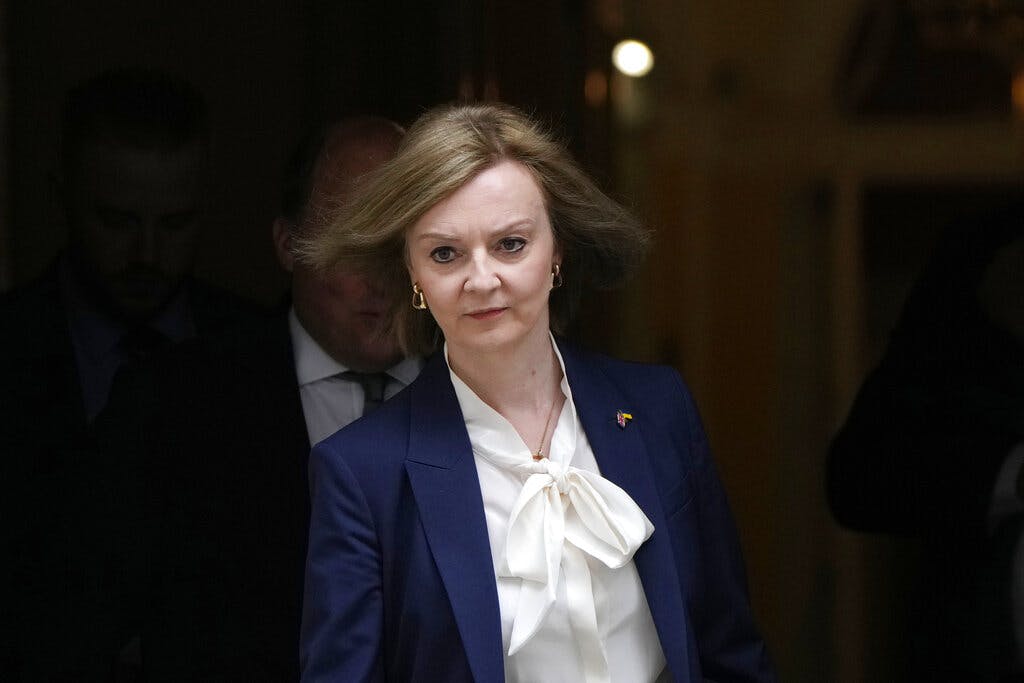British Deal To Arm Moldova ‘to NATO Standard’ Said Imminent: Report
Any major shipment of Western armaments to Moldova, which is situated between Romania and Ukraine and is not a member of NATO, is almost certain to inflame the Kremlin.

Britain is preparing to provide Moldova with modern weaponry to help fend off any threats of invasion by Vladimir Putin, the British foreign secretary, Elizabeth Truss, has said. In an interview with the Telegraph, Ms. Truss said, “I would want to see Moldova equipped to NATO standard. This is a discussion we’re having with our allies.”
In a sign that a deal is imminent, the remarks came on the day Ms. Truss met with her Moldovan counterpart, Nicu Popescu, on the sidelines of a meeting of the Council of Europe at Turin on Friday. Earlier in the week, a team of British diplomats flew to the Moldovan capital, Chisinau. As of Sunday there was no comment from the Moldovan government about the developments.
Any major shipment of Western armaments to Moldova, which is situated between Romania and Ukraine and is not a member of NATO, is almost certain to inflame the Kremlin. In her interview with the Telegraph, Ms. Truss said that Mr. Putin is bent on creating a “greater Russia” and roughing up Moldova or even swallowing it whole may well figure in that plan, if only peripherally for now.
While most of the Russian forces that invaded Ukraine in February have now pivoted to the eastern Donbas region, Russian officials have previously signaled that one of their strategic goals is to extend a land bridge from Mariupol in the east all the way to Transnistria, a Russian breakaway state that borders Moldova, to the west.
The speculation that British weapons could be arriving in Moldova soon is already ruffling feathers inside a country that has watched the war in Ukraine warily and where a spate of recent attacks in Transnistria — likely Russian false flag operations — have already raised tensions. A former Moldovan president and current head of the country’s pro-Russian Socialist party, Igor Dodon, said on his Telegram channel: “We don’t need NATO,” adding, “Military ‘aid’ from NATO may turn out to be a notorious disservice that will only make us worse, bring grief to our country and turn our soldiers and our people into cannon fodder.”
Neutrality is a central tenet of the Moldovan constitution but the country’s current president, Maia Sandu, is seen as both pro-EU and more attuned to the exigencies of a rapidly changing, if not outright deteriorating, security situation. The Telegraph reported that if the British plans take effect, members of the NATO alliance would not only provide modern weapons to Moldova in order to replace its aging Soviet-era equipment, but also train Moldovan soldiers on how to use them.
Tiny Transnistria already hosts a permanent detachment of Russian soldiers, said to number between 1,500 and 1,600. While Vladimir Putin has a lot on his messy plate, he will no doubt be aware of any shift in the security situation in the obscure but strategically situated region, and none too pleased about it. Whether delivery of modern weaponry to Moldova would cause him to deploy more troops to the region or kick any thoughts of an invasion down the road is anybody’s guess, but for now London appears to be betting on the latter position.
What is certain is that the risk of escalation is ever-present. On Thursday Reuters reported that the Pentagon said the chairman of the U.S. Joint Chiefs of Staff, General Mark Milley, spoke by telephone with Russia’s chief of general staff, Valery Gerasimov, their first conversation since Russia invaded Ukraine. “The military leaders discussed several security-related issues of concern and agreed to keep the lines of communication open,” a spokesman for General Milley said.
Whether a discussion of the dynamic situation in Moldova and Britain’s more assertive role in it was part of the conversation was not disclosed nor made immediately clear. A security professor at the Russian Academy of Sciences, Dmitry Danilov, told the Telegraph, “Even Chisinau’s readiness to consider a military evolution of the Moldovan-Tranistria conflict makes it difficult to find any mechanisms to limit escalation.”

